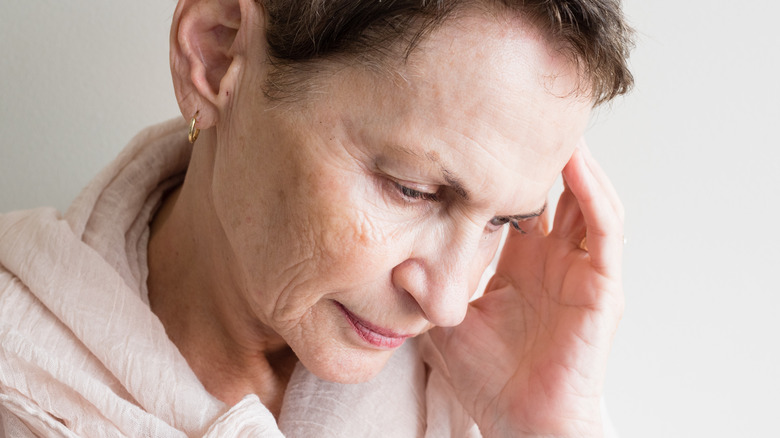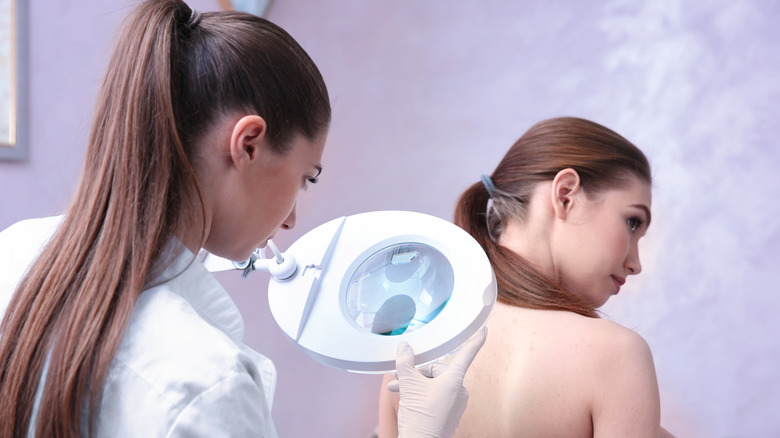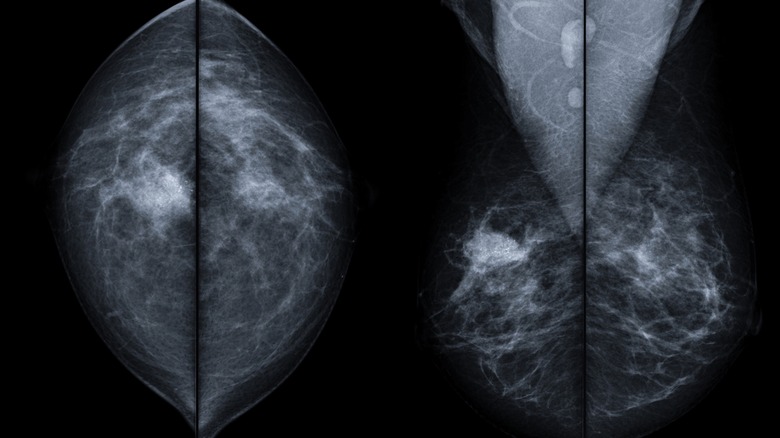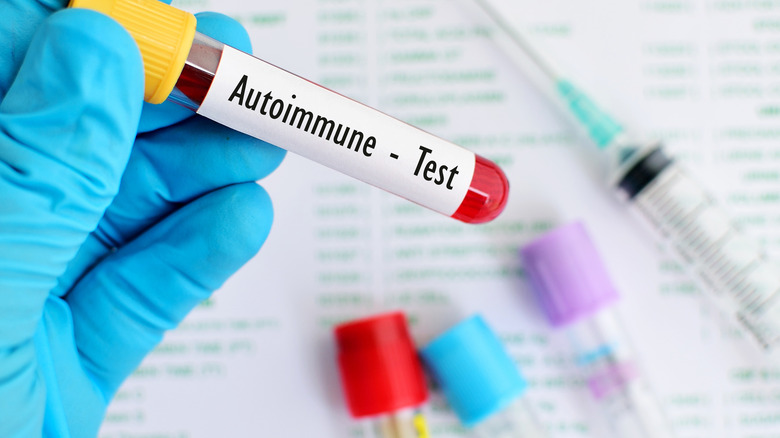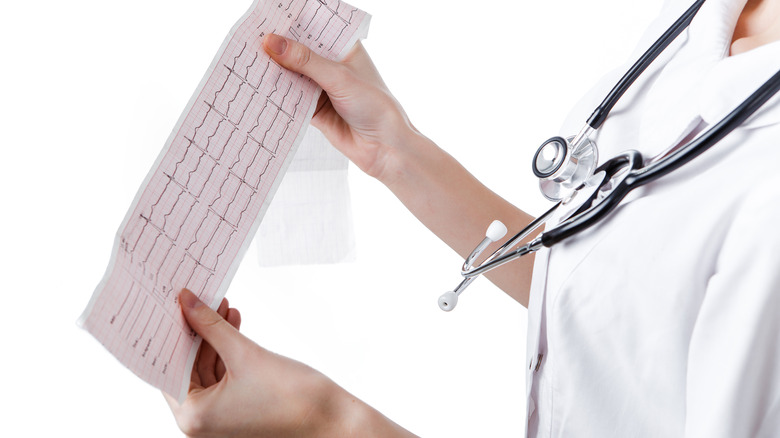Things You Should Know About Your Mom's Health
How much do you really know about your mom's health? Have you ever taken her out to coffee and asked her important questions about her family history and her own health history? If you've never thought about finding out about your mom's health, it's time to get curious so that you can make lifestyle changes to protect your own health.
Meghan Meredith, a Certified Health and Wellness Coach and the founder of HomeBodySoul, told me in an interview, "Many of us do not know the details of our family history, and if your parents have experienced any serious medical conditions throughout their lives or if there are any hereditary illnesses on a particular side of the family. This information is so important and can be incredibly helpful when it comes to disease prevention and treatment."
Lynne Thomas Gordon, a speaker for The American Health Information Management Association (AHIMA), agreed. She told me, "Understanding your family medical history is important so that you can make decisions regarding your own personal behaviors and lifestyle choices."
But what are the most important things to learn about your mom's health? I went to the experts to find out.
Does your mom have depression or mental illness?
One of the most important things you can ask your mom is if she has struggled with depression or mental illness. Depression can be a lifelong illness, so it's essential to find out your mom's history of mental illness as early as you can.
Meredith told me, "Bipolar disorder and depression have been found to run in families. Mental health is something that tends to be hush hush, but it's vital that it be discussed within your family so that you know if you could be predisposed to depression and when to seek help." If your mom acts depressed, or if you feel symptoms that could be signs of depression, bipolar disorder, or ADHD, finding out if there's a genetic link will help you take action and get the support that you and/or your mom need.
Heather Wittenberg, PsyD told Everyday Health, "Many mental health conditions are now thought to be at least partly heritable, including depression and bipolar disorder, schizophrenia, and ADHD. That's not to say you should panic if such conditions run in your family, but you should be aware so that in case symptoms come up, you can get help as soon as possible." Even though it can be very difficult to have conversations about mental health, facing these issues head on will help you heal.
Has your mom experienced fertility issues?
The more you know about your mom's fertility experiences, the more you will be able to anticipate your own fertility journey. It's important to learn as much as you can about your mom's experiences with pregnancy, fertility related conditions, and menopause.
HealthLabs.com's Chief Physician, Dr. David Kulbersh, MD, told me, "Fertility issues or difficulties are not necessarily genetic, but if your mother experienced problems with fertility, it can be a good reason to get some testing done, especially if you are having trouble becoming pregnant." Meredith agrees and told me, "Knowing when your mother went into menopause can provide you with helpful information as to when you will stop menstruating and go into menopause. This is important to know for fertility issues and knowing your optimal conception timeline." For example, if you know your mom experienced menopause early, you can take action to conceive earlier in life.
Polycystic Ovarian Syndrome or PCOS is a medical condition that can affect your fertility. Knowing if your mom has or had PCOS symptoms can help you identify the condition in yourself so that you can take action to prevent other related conditions. Tsippora Shainhouse, MD, FAAD, board-certified dermatologist in Beverly Hills, told me, "PCOS is important to diagnose, because it can be associated with insulin-insensitivity and diabetes. It can also be associated with fertility issues. PCOS can be genetic, and your mom may have some of the symptoms, including infertility."
Does your mom have any allergies?
Find out as much as you can about your mom's allergies, because you may share them — and you'll likely pass them on to your daughters, as well.
In a 2012 study, researchers found that not only are allergies genetic, they are also tied to gender. The study followed almost 1500 children as they grew up, beginning at age one and ending when the subjects were 18 years old. They found that allergies, asthma, and eczema all had genetic links, which strengthened when the parent with the allergies was the same gender as the child. The researchers concluded, "We have shown that the effect of maternal and paternal history of allergy varies with the sex of the child, whereas maternal allergic history increased the risk of asthma and eczema in girls and paternal history of allergy increases this risk in boys."
If you know about your mom's allergies, it will give you insight into your own health, and it will also help you know what to expect for your children's health.
Does your mom's family have a history of melanoma?
Melanoma is a type of skin cancer that unfortunately impacts women at a young age. Dr. Shainhouse told me, "Its incidence is rising in young women, and it is the second leading cancer in women aged 15 to 29 years. While UV rays are probably responsible for about 86 percent of cases, at least 10 percent of cases are due to genetics." Since melanoma is so prevalent, it's especially important to know whether your mom ever experienced it so that you can get checked out more regularly.
Dr. Shainhouse went on, "It is important to know if you have a family history of melanoma in 1st relatives, including parents and siblings. If you do, be sure to have your skin checked annually, and more frequently if you have had suspicious lesions of your own." Melanoma is treatable — as long as you catch it early. That's why it's essential to understand whether you are at risk of contracting it so that you can be diligent about going to the dermatologist.
Has your mom ever had breast or ovarian cancer?
Breast and ovarian cancers both have genetic links. Find out whether your mom or other close family members have been diagnosed with breast or ovarian cancer so that you can take preventative action.
Dr. Shainhouse told me, "We now know that carrying a BRCA gene mutation will increase your likelihood of developing breast and ovarian cancer." She continued, "It is important for women to know if they have a family history of breast and/or ovarian cancer in close family members and especially multiple family members, and the age at which they were diagnosed, as this can affect the age at when you might need to begin mammograms, and if you need a more intensive work up."
According to the CDC, one out of 500 women have a BRCA gene mutation, and "If your mother has a BRCA1 or BRCA2 gene mutation, you have a 50 percent chance of having the same gene mutation." Women with a BRCA mutation have a 50 percent risk of contracting breast cancer by the age of 70 and a 30 percent risk of contracting ovarian cancer by the age of 70. By comparison, the numbers for the general population are 7 percent and 1 percent. These numbers aren't meant to freak you out — only to share the point that if you know one of your parents has the BRCA mutation, getting tested will help you take action to protect yourself in the future.
Does your mom have an autoimmune disease?
Autoimmune diseases can wreak havoc on your health. When you experience an autoimmune disease (of which there are over 80), your immune system begins attacking your healthy cells. This causes symptoms like fatigue, fever, and inflammation. There are so many autoimmune diseases that they can be difficult to diagnose, and knowing if your mom has an autoimmune disease will help your doctor better understand what is going on with your own health.
Dr. Shainhouse told me, "Autoimmune disease is most common in women and often begins after age 20. Some autoimmune diseases include: thyroid disease, lupus, psoriasis and celiac disease. There is a genetic component to autoimmune diseases, and it can be helpful to know this family history when doctors are trying to make certain diagnoses."
Unfortunately, autoimmune diseases are incurable, however, knowing you have one can help you treat your symptoms. Meredith told me, "Although there isn't much one can do to prevent getting RA or lupus, knowing your risk can help one to be more vigilant in their monitoring and begin treating the condition early on, which can greatly impact one's quality of life." Treatments include blood transfusions, anti-inflammatory medication, pain medication, and physical therapy, depending on the specific disease.
Has your mom experienced any heart problems?
If either of your parents have a history of heart problems, you are also at risk for heart disease. Dr. Kulbersh told me, "Heart health is strongly linked to heredity: cardiovascular disease, high blood pressure, and high cholesterol run in families (and often for many generations), so it is imperative to know your family's medical history in regards to the heart. If you find out your mother or her parents had one or more of these conditions, get the appropriate lab testing done."
If you know that your mom has high blood pressure or high cholesterol, you can be more proactive about getting your own blood pressure and cholesterol levels checked out, which will help you stay healthy and prevent heart disease. You can also make lifestyle changes to keep your blood pressure and cholesterol in check, including exercising, making healthy dietary choices, and drinking less alcohol.
Even if you have normal cholesterol levels, you still may be at risk for heart attacks or strokes. Dr. Kulbersh told me, "There is a blood test called the C-Reactive Protein (CRP) High Sensitivity Test. It is used to help assess heart attack and/or stroke risk in individuals. The correlation between c-reactive protein levels and heart health provides insight into an individual's stroke and heart attack risk, even if they have normal or average cholesterol levels. Individuals whose parents have had heart attacks should get this test."
Has your mom been diagnosed with osteopenia or osteoporosis?
Osteoporosis is the most common bone disorder affecting women. It causes your bones to weaken and break more easily. It's also been strongly linked with genetics — researchers have confirmed at least 15 genes as osteoporosis susceptibility genes.
If your mom or grandmother have or had osteoporosis, you can take action early in life to make sure you have stronger bones, including taking calcium supplements and exercising more regularly. In an interview, Dr. Jennifer Bowers, PhD, RD shared her personal story with me: "My mother and grandmother both had osteopenia/osteoporosis. While I don't share their bone structure or frame, I do not consume many dairy products. So this was important news for me to contend with. I regularly take a calcium supplement and rely on almond milk at breakfast (super high calcium) because of my lack of milk and cheese intake. I was fortunate that my mother and grandmother both shared their bone density data with me."
According to the International Osteoporosis Foundation, taking preventative measures to ensure your bone health will make a difference as you age: "Genetic factors play a significant role in determining whether an individual is at heightened risk of osteoporosis. However, lifestyle factors such as diet and physical activity also influence bone development in youth and the rate of bone loss later in life." They recommend doing weight-bearing activities, avoiding excessive drinking and smoking, getting enough vitamin D, and supplementing with calcium.
Get the information you need
You may feel uncomfortable asking your mom about her health, but you need to have a frank conversation with her in order to learn about these important health risks. I asked the experts what they suggested you do to find out more about your mom's health.
Gordon recommended having a conversation with your mom and then going to the doctor with her. "Start by asking your mom to describe her health history with you. You might also ask your mom if you have her permission to accompany her on her next annual checkup. This would be a great way to hear her health history, current medical issues and better understand how you can begin to take care of yourself."
Meredith added that you and/or your mom may need to take tests to learn more about your health. She said," It may require further blood tests or genetic testing, but believe me, it will be worth the time, money, and investment in your own health and wellbeing."
If your mom is very private about her health, it may help to share this article with her and show her how this knowledge will help you make decisions that will have a lasting impact on your health, as well.
Let it motivate you
Learning about your family medical history can feel scary. You probably hate the idea of aging or getting sick, and it may be frightening to think about your mom being sick, too. But you don't have to succumb to your fear. Use this information as a springboard for taking action instead of letting it scare you.
Meredith told me, "This information should be used to motivate you, not cripple you."
Once you have gathered this information from your mother about your family health history, you can be empowered to take care of yourself in the way you need to and be your own health advocate — and no one is a better advocate for your health than you!"

